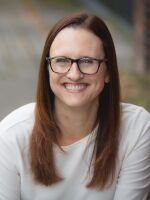Every 10 years, the population of the United States gets counted. The actual census starts in March of next year, with a first-ever digital rollout of forms. By April, paper copies are sent to those who haven't already filled out the information online.
Even though the count doesn't begin for several months, there's work being done by organizations to get the word out about the importance of taking part. Washington Census Alliance Manager Kamau Chege says his group has focused specifically on populations that are historically undercounted, including people of color.
"Once every 10 years we get to take a look at who the country is and who we are," Chege said. "And it sets the basis for allocating important public resources. So if one area has had growth in population, it's important that the federal government send additional resources for things like roads and schools. And it's also important because in the Constitution, it's how we allocate the number of representatives that a certain area might have."
Chege says the current political climate, and the controversy around including a citizenship question on the 2020 census, has had a chilling effect on many people who are often times already left out of the population count.
"I was meeting with the Northwest Kenyan Community [Association] in Federal Way. And what I was hearing from... some 70-odd people in the community, is that fear is already present. And even know we know for a fact the citizenship question will not be on the census, the damage has already been done."
Chege explains the Washington Census Alliance is trying to combat that mistrust by working with organizations he calls "trusted messengers."
"We're bringing together organizations that already work in these communities: indigenous organizations, organizations that are immigrant led, led by communities of color," he said. "Already there are communities who have doubts about what the government might do with their data, and we need trusted messengers to let them know why the census is important. So we're encouraging people to self-respond to the census when that begins."
People living in rural areas are often undercounted, Chege says. Another group that's left out are children younger than 5, and he says that's a problem.
"By the time we get to the next census in 10 years, that child will be using the roads, maybe riding their bicycle. They'll be going to schools," Chege said. "And federal funding formulas need to make sure that that child is counted for so that our schools, our roads, the resources that everyone uses are adequately funded."
The Washington Census Alliance will use the next several months to continue working with "on-the-ground" organizations to work on messaging and combatting misinformation campaigns. The group's work will become more tailored by region after the first rollout of the census begins, digitally, in March. Chege explains the organization will be getting real-time data to know which areas of the state need more attention.








